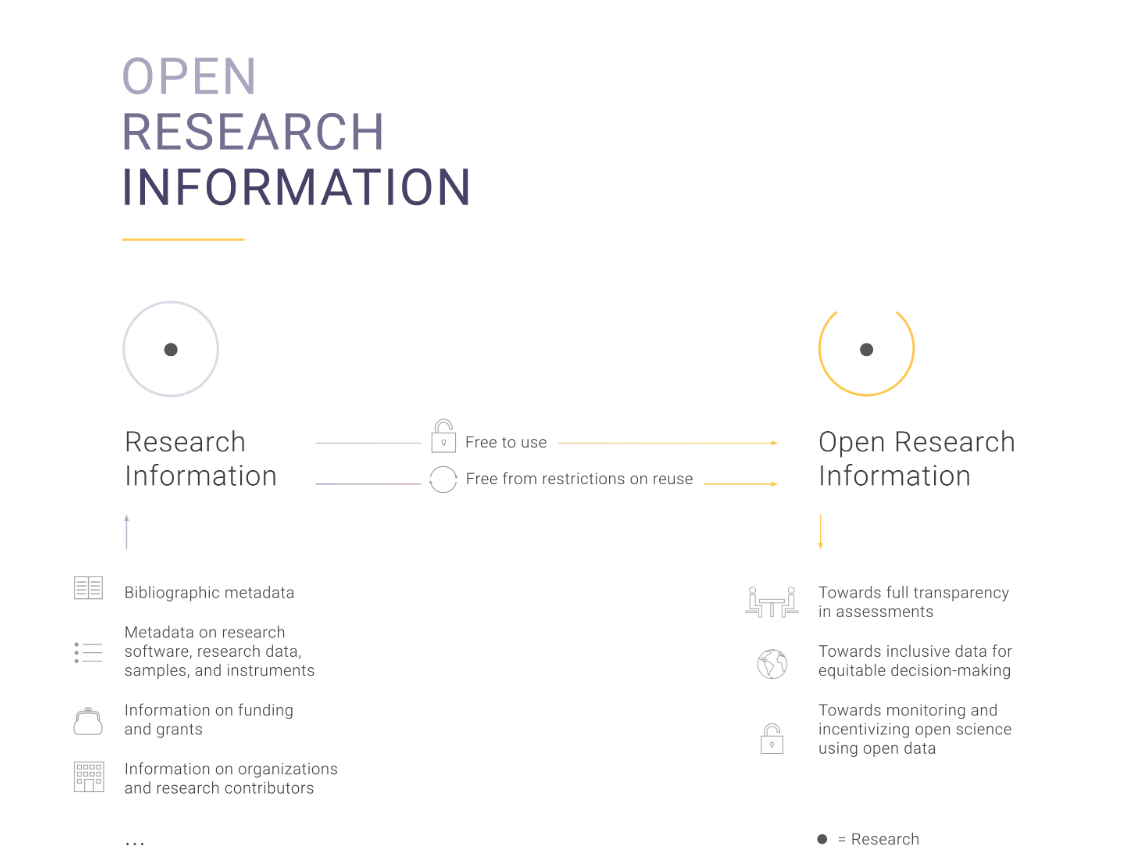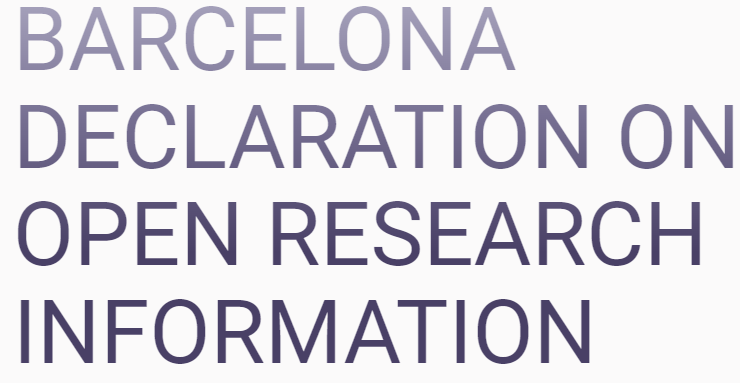The French Committee for Open Science is a signatory to the Barcelona Declaration on Open Research Information
The signatories of the Barcelona Declaration on Open Research Information commit to taking a lead in transforming the way research information [1]By research information we mean information (sometimes referred to as metadata) relating to the conduct and communication of research. This includes, but is not limited to, (1) bibliographic metadata such as titles, abstracts, references, author data, affiliation data, and data on publication venues, (2) metadata on research software, research data, samples, and instruments, (3) information on funding and grants, and (4) information on organizations and research contributors. Research information is located in systems such as bibliographic databases, software archives, data repositories, and current research information systems.is used and produced. Openness of information about the conduct and communication of research must be the new norm.
Too often, strategic decision making in research is based on closed research information which is locked inside proprietary infrastructures that impose severe restrictions on the use and reuse of the information.
Errors, gaps, and biases in proprietary research information are difficult to expose and even more difficult to fix. Indicators and analytics derived from this information lack transparency and reproducibility. Decisions about the careers of researchers, about the future of research organizations, and ultimately about the way science serves the whole of humanity, depend on these indicators and analytics that have up to now worked like black-boxes.
The French Committee for Open Science is part of more than 30 signatory organizations of the Barcelona Declaration. They are all committing to making openness of research information the norm. Open research information enables science policy decisions to be based on transparent evidence and complete data. It enables information used in research evaluations to be accessible and auditable by those being assessed. IAnd it also enables the global movement toward open science to be supported by information that is fully open and transparent.
The declaration is fully aligned with the 2021 Council Conclusions, drawn in the framework of the French presidency. The Council conclusions state that “data and bibliographic databases used for research assessment should, in principle, be openly accessible and that tools and technical systems should enable transparency” and it also complies with the principle of openness by default of public sector data decided by the French law of 2016 called “Law for a Digital Republic”. The Declaration is also aligned with the COARA principles, requiring “independence and transparency of the data, infrastructure and criteria necessary for research assessment and for determining research impacts”. More than 50 French research performing organisations are COARA members.
In addition to the Committee for Open Science, the following French institutions are signatories at the launch of the declaration:
- Agence Nationale de la Recherche
- Université de Poitiers
- Université Grenoble Alpes
- Université Le Havre Normandie
- Université Paris Saclay
- Udice
- UnilLaSalle
- Sorbonne Université
Commitments
The signatories of the Barcelona Declaration on Open Research Information make the following commitments:
1 We will make openness the default for the research information we use and produce;
2 We will work with services and systems that support and enable open research information;
3 We will support the sustainability of infrastructures for open research information;
4 We will support collective action to accelerate the transition to openness of research information.
The full text of the Barcelona Declaration can be found on barcelona-declaration.org

References





